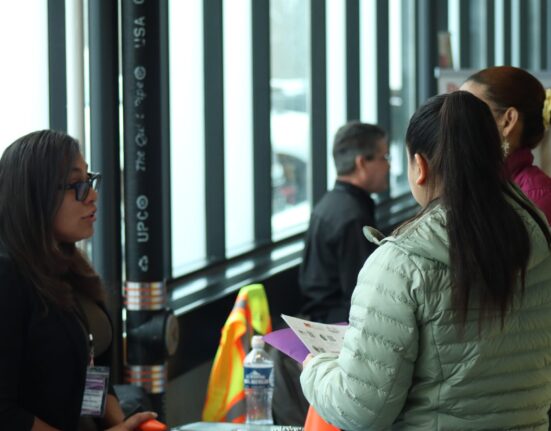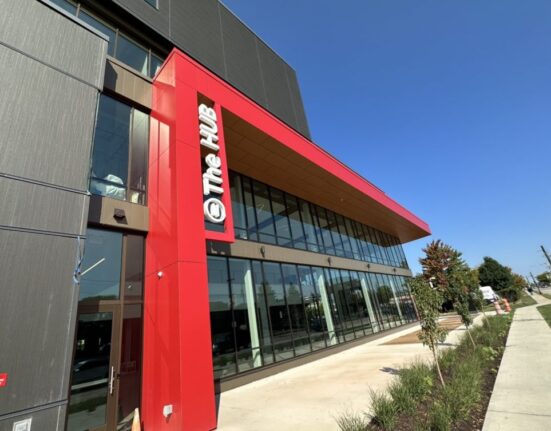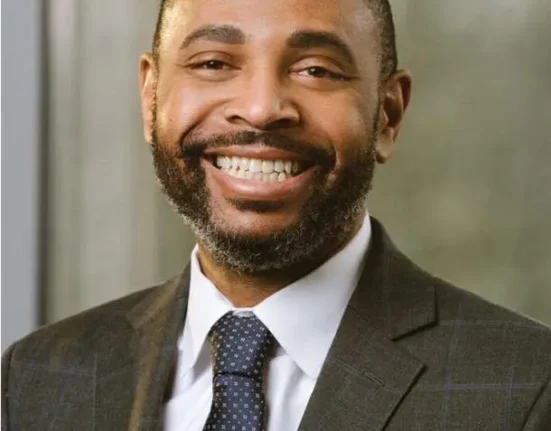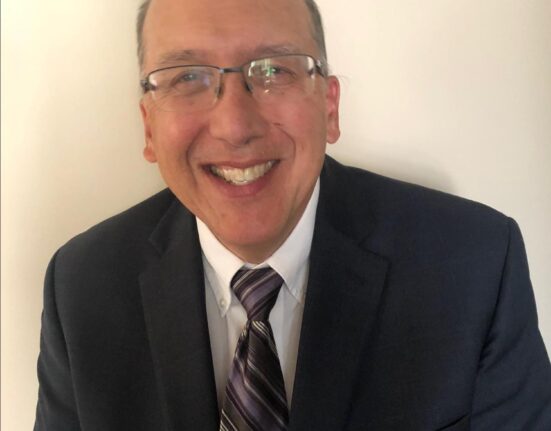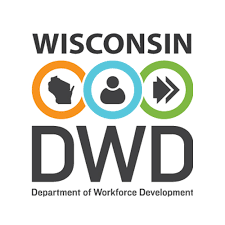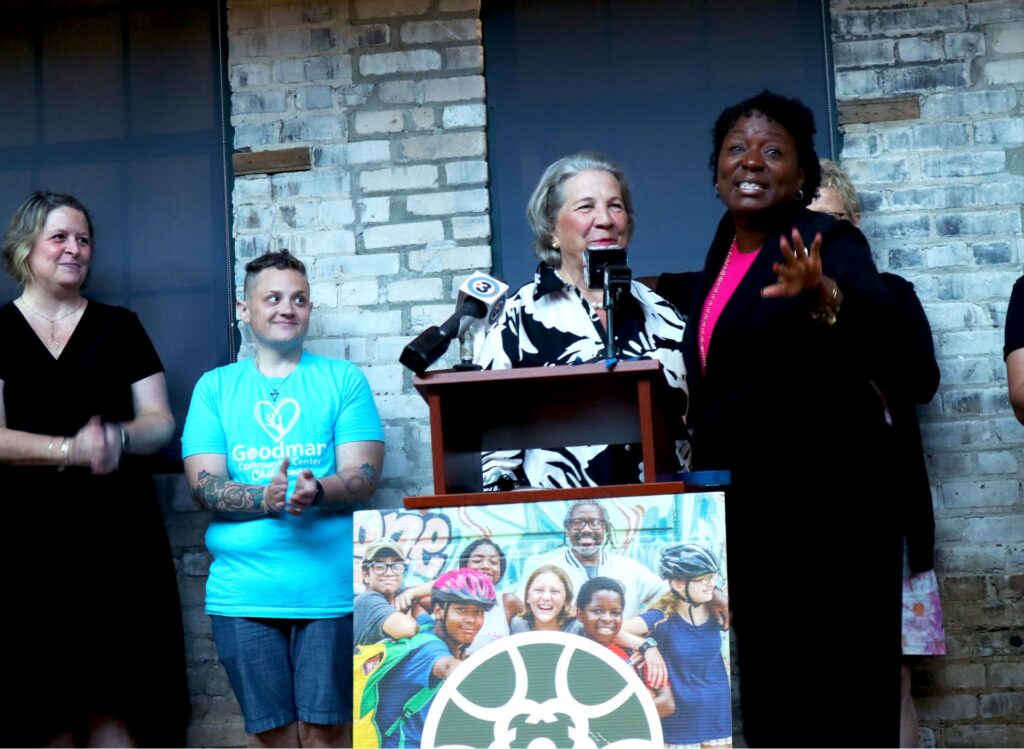
A better, more financially stable future has become a reality today as the Goodman Community Center has raised wages in its livable wage initiative.
The Goodman Center announced today that wages will be $20 per hour minimum for all employees. Previously the lowest wage at the Goodman Community Center was $15 and a significant number of workers made $17 or under. The plan was to scale everyone up to $17 per hour, but after lengthy considerations, leaders chose $20 to reflect a solid livable wage.
According to a press release issued Tuesday, all Goodman Center employees except senior leadership received a raise in the last pay period.
The initiative has been in the works since just months after CEO of the Goodman Community Center, Letesha Nelson, stepped into her role in 2021. Nelson shed tears of joy over the ability to promise wages that reflect the importance of the work nonprofit workers do. She said in a press conference Tuesday that in her over two decades working in nonprofits, she wished that someone would have stepped up to do the same for her in her career.
“I am very excited as the leader of Goodman at this time to announce that we are going with an internal living wage of $20 an hour,” Neslon said. “I had been in Madison for two and a half years, watching my staff, who are incredible, who pour their hearts out to this community every single day. And there is no way as a leader that I cannot do something for them, to continue to help them come back here every day and give us the expertise that they provide our community.”
As the leader of Goodman Community Center, Nelson found it to be the bare minimum they could do to reflect the hard work and expertise that each employee provides.
The increase in wages was a sudden acceleration of Goodman’s plans. The goal was to have wages increase next year, but increased funds from donors made it possible to make the move early.
To increase the minimum wages over the next five years, Goodman Center staff estimated they’d need to raise $2.75 million. The executive team opted to make the change immediately instead of the following year after raising just over $2 million – 75% of the funding needed to increase the minimum wage for the next five years. The Goodman Community Center is still looking for the last bit of funding but will be able to sustain it within its budget for the time being. The need to raise the wage reflects a problem that nonprofits and their employees face consistently.
“I firmly believe that the $20 living wage not only lifts up and enhances the employees but also the organization’s overall effectiveness. When individuals are adequately, adequately compensated they experience higher job satisfaction — they’re more likely to remain in their roles long term,” said Becky Steinhoff, founder of Goodman Community Center and former CEO. “Having had the privilege of leading this nonprofit, I witnessed firsthand the incredible passion and dedication and tireless efforts demonstrated by staff and employees.”
Steinhoff had led Goodman for 30 years and was invited by the current CEO to speak on the importance of adequately compensating nonprofit workers.
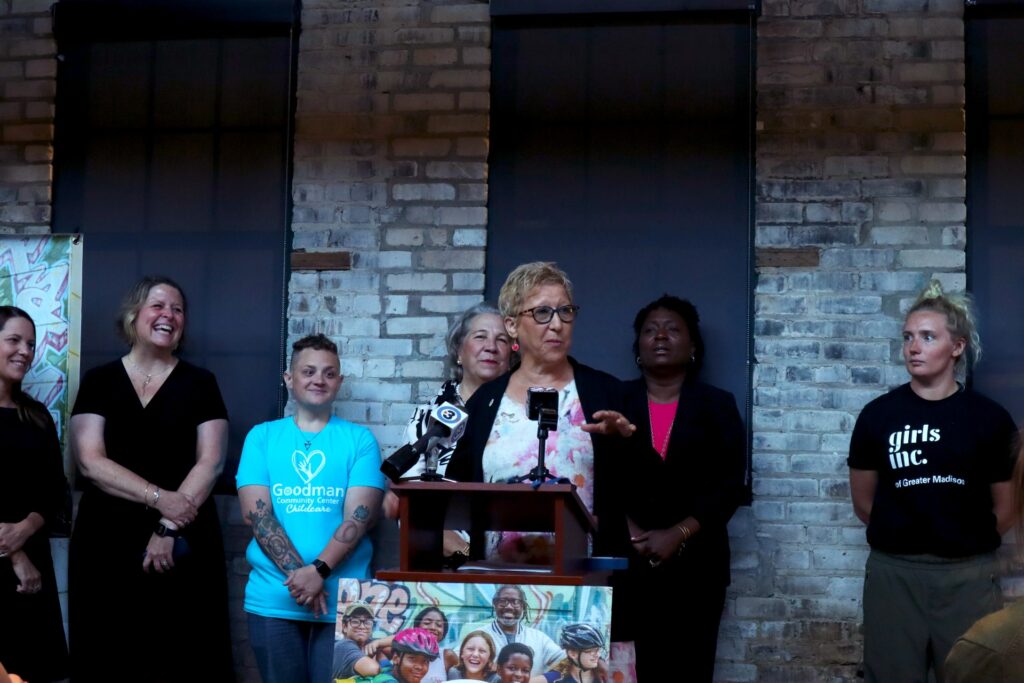
Nelson had received a slew of anecdotal emails from employees about how the wage increases will better their lives. One such employee, Caiden Weatherwax, spoke on how the stability they needed will improve the quality of their lives.
“Personally, the living wage increase is giving me the means to pay my rent and my student loans and to visit the food pantry less often,” Weatherwax said. “Throughout my life, I have experienced financial stability and for the last eight months, I’ve been on the other end and experiencing financial instability.”
Weatherwax feels as if they will no longer have to be as strongly addled by the uncertainty they had experienced the last eight months. The increase in wages removes financial stress and allows them to focus on providing education to students in Goodman’s programs.
A raise to the wage is just a start for Goodman. Nelson wants Goodman’s actions to be inspiration for other nonprofits to follow suit in raising wages. While it can be unrealistic for a nonprofit to just increase wages as Goodman has, Nelson encourages community members to give to any nonprofit that has had an outward effect on their lives.
“If you are able to consider a gift, I’m talking to you whoever is looking at this and not just about Goodman, think about that nonprofit who needs a lift,” Nelson said. “Think about the people who work there to make it happen for the different parts of this community every single day and say to yourself, ‘are they worth it?’”
Nelson continued to say that nonprofits are worth it. Nonprofits address social issues that allow people to live better lives and help communities thrive, Nelson said.
At the current level of funding for its livable wage initiative, Goodman can keep it up for three years. Goodman is looking for more and continuous donors to reach the five year mark and hopefully sustain it longer.


